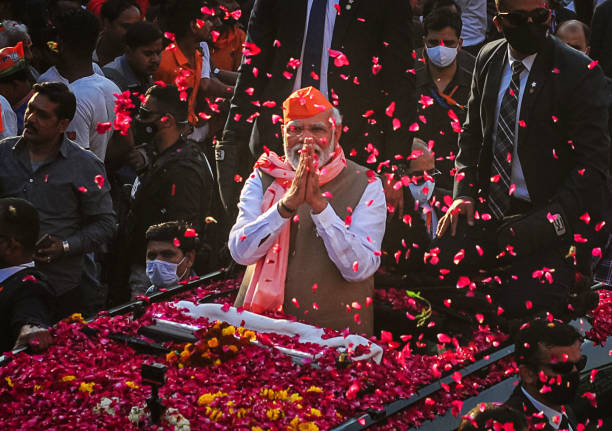India, with a population exceeding 1.4 billion, is gearing up for its mammoth election starting on April 19th. Renowned for the scale of its parliamentary elections, India ensures that even citizens in the remotest regions and highest peaks can exercise their voting rights.
In some less accessible areas, voting machines are transported by horses and elephants, while for others, polling booths can only be reached by boat. Notably, India boasts the world’s highest polling booth, situated 15,256 feet (4,650 meters) up in the Himalayan mountains.
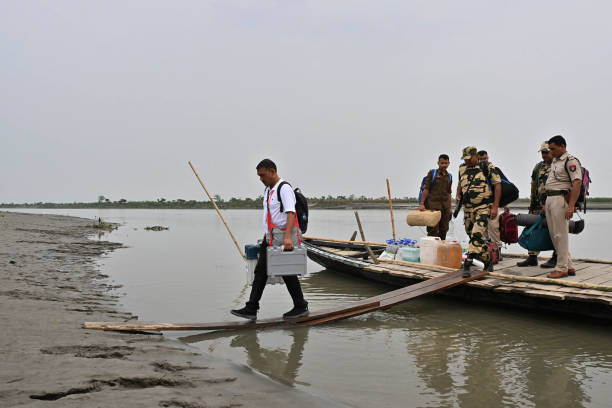
Due to its vast geography, voting takes place over seven phases across different states, spanning nearly six weeks in total. The electoral process involves electronic machines in over a million polling booths, with the Election Commission of India deploying 15 million personnel to oversee operations. Voting concludes on June 1st, with results slated for counting and declaration on June 4th.
India’s elections rank among the most expensive globally, with an anticipated expenditure of 1.2 trillion rupees (£12bn) this year, nearly double the spending in the 2019 elections.
India’s Election: A Global Impact
India gears up for its historic election with a staggering 969 million eligible voters, representing over 10% of the world’s population, including 18 million first-time voters. With more than 2,600 political parties in the fray, the frontrunner remains Prime Minister Narendra Modi and his Bharatiya Janata Party (BJP), vying for a third term after being in power since 2014.
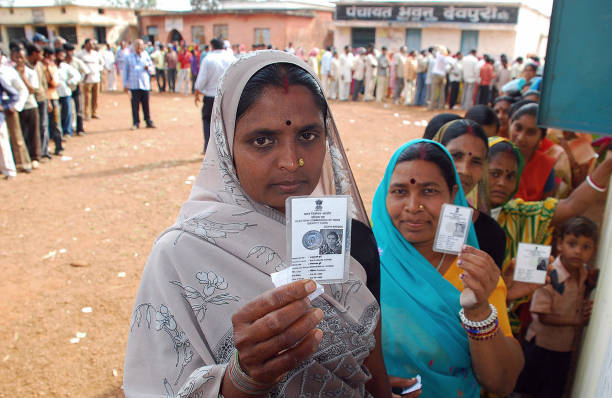
Modi’s and the BJP’s Hindu nationalist agenda has significantly reshaped India’s political and cultural environment, veering away from constitutional secularism towards Hindu majoritarian rule. This shift has sparked debates and concerns about the erosion of religious equality enshrined in the Constitution.
As the world’s most populous country with one of the fastest-growing economies, the outcome of India’s election holds global significance. India’s growing importance as an international partner, particularly for countries like the UK, the US, and France, underscores the geopolitical implications of the election. These nations have recently deepened ties with Delhi as a strategic counterbalance to China, further amplifying the international stakes of India’s electoral outcome.
BJP’s Election Ambitions: Power and Challenges Ahead
In the aftermath of the resounding victory in the 2019 elections, where it secured 303 seats, the Bharatiya Janata Party (BJP) stands as a dominant force in Indian politics, with its coalition partners swelling the total to 352 seats. Buoyed by this success, the party now sets its sights on an even greater triumph, aiming for over 400 seats in the 543-seat parliament.
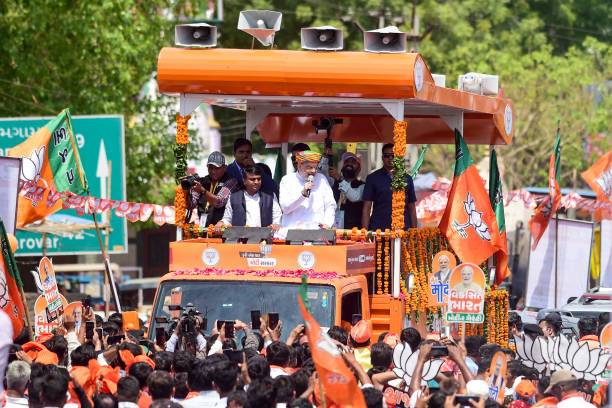
The BJP’s unparalleled position is attributed to the towering popularity of Prime Minister Modi and the consolidation of power during his tenure. This consolidation includes a meticulously organized party machinery and pioneering utilization of technology and social media to engage with voters effectively.
Moreover, the BJP boasts an extensive grassroots network of activists and volunteers, complemented by a formidable propaganda apparatus operating across various social media platforms and messaging apps like WhatsApp. However, these platforms have previously faced accusations of disseminating disinformation on a significant scale during elections.
Financially, the BJP towers above its competitors, possessing substantial resources for electioneering, having reportedly spent nearly 418 billion rupees in the 2019 elections.
Despite the BJP’s perceived inevitability of victory, lingering uncertainties persist regarding its ability to maintain its overwhelming parliamentary majority. Crucial states remain undecided, and simmering discontent over issues such as unemployment and inflation could potentially sway electoral outcomes.
As India braces for the upcoming elections, the BJP’s formidable electoral machinery faces the test of sustaining its dominance amidst prevailing challenges and evolving political dynamics.
The Modi factor
A robust cult of personality surrounds India’s prime minister, portraying him as both a strong leader and a man of the people. His humble origins, raised in poverty in Gujarat and assisting his father in tea-selling, contrast sharply with the image of the corrupt political elite.
As an unmarried individual with no children, he often refers to the Indian populace as “Modi ka Parivar” (Modi’s family). Each month, millions tune in to his radio show, Mann Ki Baat, where he engages with ordinary citizens about their concerns and lauds his government’s achievements.
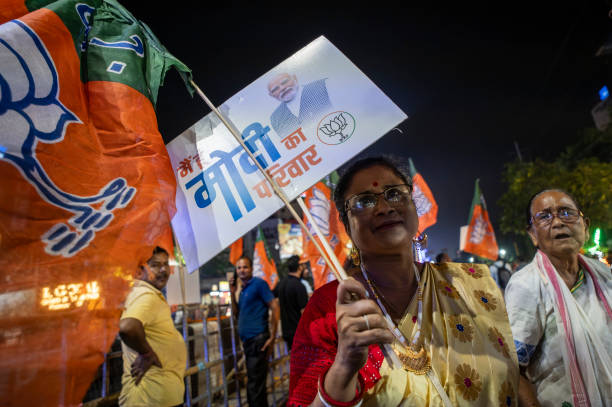
The prime minister’s visage is ubiquitous across the nation, adorning billboards, food ration packages, and even Covid vaccine certificates. Furthermore, most welfare initiatives introduced by his administration bear his name.
Strategically utilizing the media, he has cultivated a narrative around himself, tightly controlling information dissemination. Remarkably, he has never held a solo press conference in his ten years as prime minister.
Modi’s Hindu nationalist agenda garners support from a significant portion of India’s Hindu majority, allowing him to transcend traditional caste and class barriers to secure votes from rural and urban populations alike, including the lower castes and affluent urbanites.
Additionally, he receives acclaim for positioning India as a global power courted by the West, instilling pride in many of his supporters about their Indian identity.
Opposition Struggles
In the past decade, India’s opposition parties have weathered a sustained assault from powerful state agencies, resulting in a significant erosion of their influence and capabilities. Numerous opposition figures have faced investigations or arrests in financial and corruption cases they claim are politically motivated.
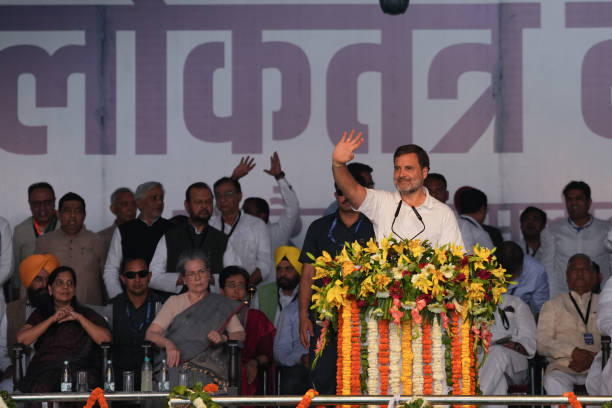
Congress, once the dominant force in Indian politics with decades of rule, now finds itself marginalized, having suffered resounding defeats in the last two national elections and subsequent state polls to the Bharatiya Janata Party (BJP). The party, associated with the Nehru-Gandhi dynasty, grapples with perceptions of elitism and dynastic politics.
In a bid to unseat the BJP, 27 opposition parties, including Congress, united last year under the banner of the India coalition. However, internal disputes over leadership and seat-sharing, coupled with defections to the BJP, undermined the coalition’s unity in most states. Additionally, the coalition has yet to nominate a prime ministerial candidate.
The government’s purported crackdown on the opposition intensified with the arrest of Arvind Kejriwal, the chief minister of Delhi and a prominent leader in the India coalition, on corruption charges in May. Kejriwal remains incarcerated, despite the government’s denial of involvement in his arrest.
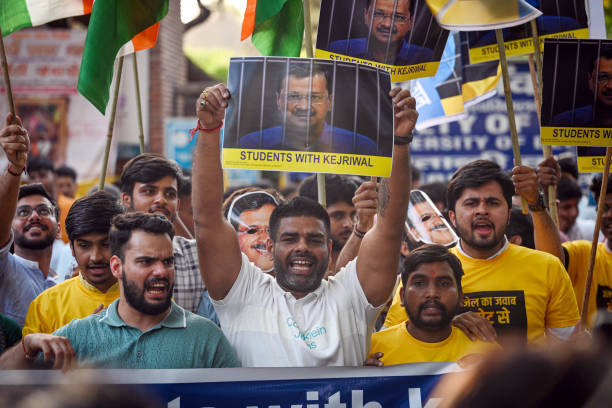
Congress has alleged that tax authorities under central government control froze the party’s accounts, hindering its campaign efforts, and issued tax notices for decades-old cases amounting to billions of rupees.
Despite the BJP’s dominance in populous northern states, known as the Hindi belt, the party faces challenges in eastern and southern regions like Kerala and Tamil Nadu, where regional politics hold sway and Hindu nationalist appeals resonate less. Consequently, the BJP has intensified its efforts to secure seats in the southern states in the upcoming election.
As the election unfolds, the opposition’s struggles against alleged state agency interference, coupled with the BJP’s regional electoral ambitions, underscore the complexities and uncertainties shaping India’s political future.
BJP’s Election Focus: “Modi’s Guarantee”
Accompanied by a fervent emphasis on religion and nationalism, the Bharatiya Janata Party (BJP) places “Modi’s Guarantee” at the forefront of its campaign, with the prime minister himself spearheading promises of economic development, infrastructure advancement, and upliftment of families from poverty.
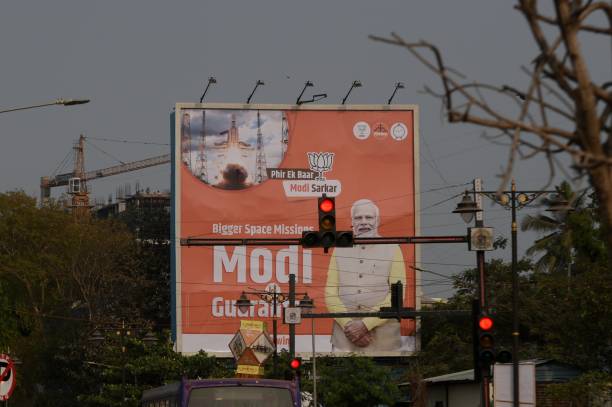
Prime Minister Modi’s nationwide tour has been marked by billions of rupees worth of infrastructure projects, including airports and highways, alongside the promotion of government welfare programs, such as free food rations, which have garnered popularity among disadvantaged voters.
Despite India’s economic growth, wealth remains disproportionately concentrated among the elite, exacerbating the gaping divide between the rich and the poor. The opposition is poised to capitalize on pressing issues like chronic unemployment, particularly among the youth, as well as inflation, which has exacerbated everyday struggles for the less affluent.
Critics of the BJP decry what they label as “corrupt crony capitalism” flourishing under Modi’s leadership. Moreover, there is widespread discontent among farmers, a substantial and influential voting bloc, who claim to have borne the brunt of his administration’s policies.
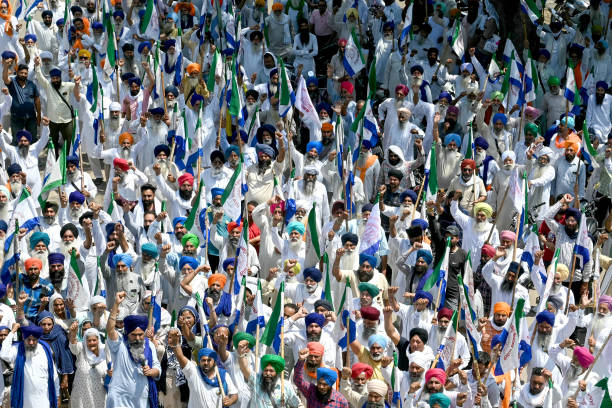
In contrast, the Congress party’s manifesto includes pledges to conduct a nationwide caste census to reveal the true extent of deprivation in the country. Additionally, it vows to enact legislation permitting civil partnerships for LGBTQ+ couples, aiming to address broader social inequalities.
As India gears up for elections, these competing narratives and promises underscore the complex issues shaping the electoral discourse, with economic concerns and social justice agendas occupying center stage alongside ideological and identity-based themes.
Allegations of Electoral Bias Surface Amid India’s Democracy
Throughout its 75 years of independence, India has prided itself on conducting elections that are generally perceived as free and fair, boasting high turnout rates, such as the 67% recorded in 2019, with results that are typically uncontested. However, recent years have seen accusations of electoral manipulation cast a shadow over this reputation.
Critics argue that during its decade in power, the Modi administration has implemented measures that tilt the electoral playing field unfairly in favor of the Bharatiya Janata Party (BJP).
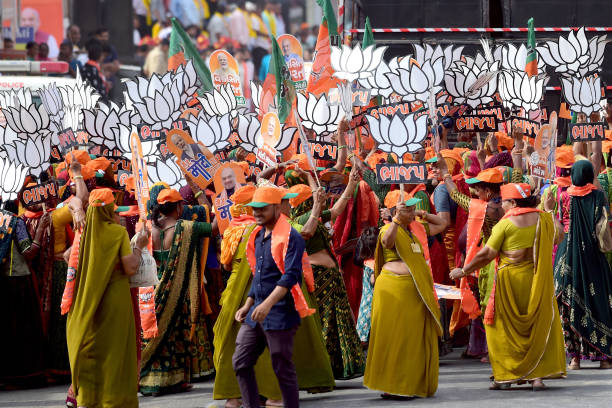
Concerns have been raised about the erosion of media freedom under Modi’s tenure, with watchdogs documenting crackdowns on independent and critical media outlets, leading to a media world that predominantly favors the government. Additionally, the independence of the judiciary has been called into question.
Recent events, such as the arrest of Kejriwal and the freezing of Congress’s accounts, have prompted international scrutiny, with statements from the US, Germany, and the UN urging India to ensure the integrity of its electoral processes.
One institution under particular scrutiny is the Election Commission, tasked with maintaining the impartiality of elections and adjudicating campaign violations. Critics point to recent changes in appointment rules that have granted the government majority control over commission appointments. Shortly after these changes, a panel of the commission resigned abruptly, raising suspicions about government influence in the selection process.
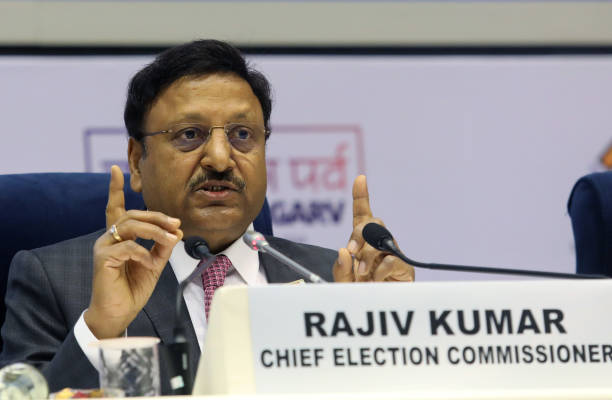
“In the last 10 years, it looks like the Election Commission has become an extended arm of the government,” remarked Kapil Sibai, a member of parliament, echoing widespread concerns. However, the government denies allegations of partiality in the selection process.
Furthermore, opposition parties have repeatedly questioned the transparency of and potential tampering with electronic voting machines, although no concrete evidence of manipulation has been presented. These allegations cast doubt on the integrity of India’s electoral process, raising significant concerns about the future of its democracy.
Concerns rise over BJP’s third term in India
As India braces for its upcoming elections, apprehension looms large over the potential outcomes, particularly if the Bharatiya Janata Party (BJP) secures a resounding victory. Many observers fear that a continuation or even an amplification of the BJP’s majority could pave the way for the rapid implementation of its Hindu nationalist agenda, reminiscent of its actions following the 2019 elections.
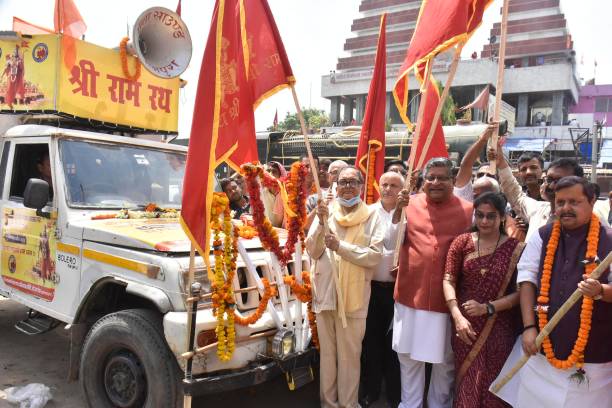
Central to these concerns is the BJP’s pledge to enact a uniform civil code nationwide. Critics worry that such a move could undermine the rights of religious and cultural minorities, curtailing their freedom to practice as they choose.
Moreover, there are apprehensions about the specter of further authoritarianism and democratic regression under a potential third-term BJP government. Since Narendra Modi assumed power, India has witnessed a concerning trend of democratic backsliding, leaving many wary of what the future holds if this trajectory continues.
Yet, perhaps the gravest concern among opponents is the BJP’s ambitious goal of securing a staggering 400 seats, which would grant it a substantial enough majority to amend India’s secular constitution. Such a move could fundamentally alter the nation’s character, formalizing it as a Hindu-first state, much to the chagrin of those advocating for secularism and pluralism.
As the election approaches, these apprehensions underscore the pivotal juncture at which India finds itself, with the potential for significant shifts in its political and social development depending on the electoral outcome.
